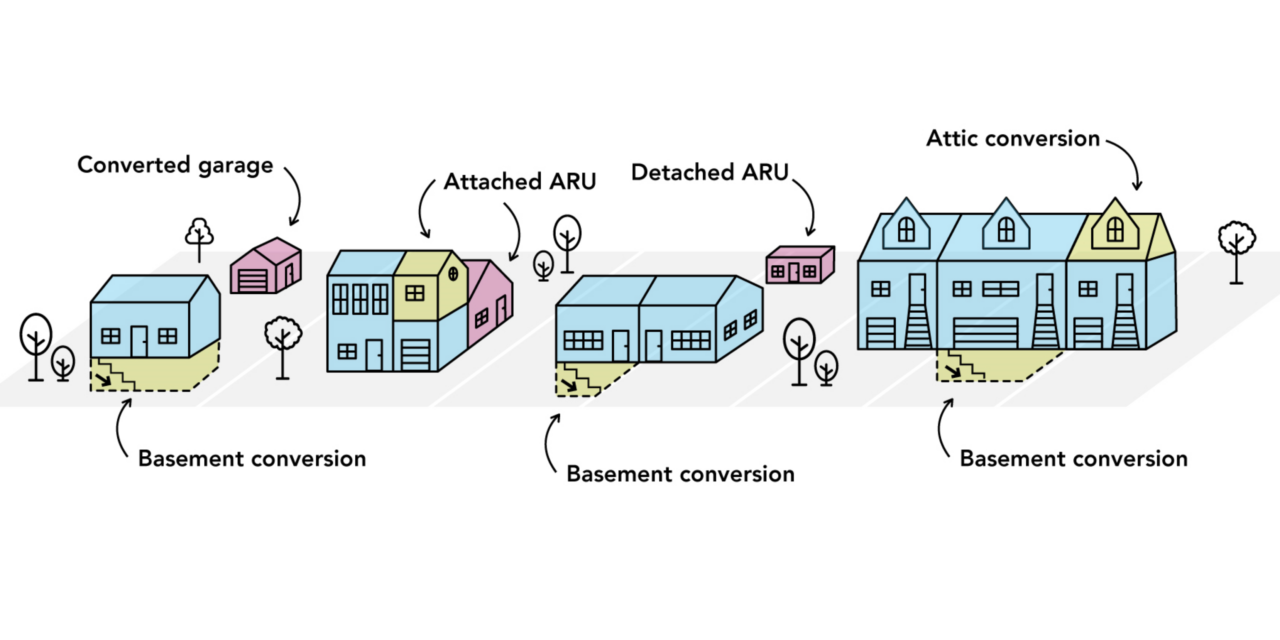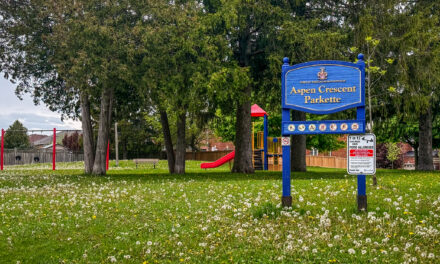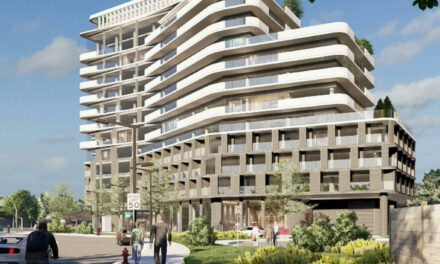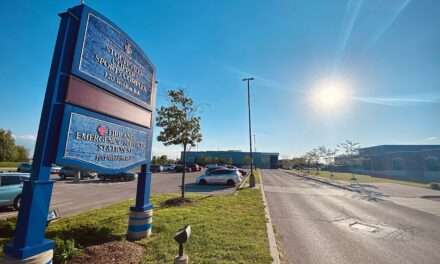- Following the implementation of Ontario’s Bill 23, the Planning Act now mandates municipalities to permit three residential dwellings on settlement area lots with existing water and sewer servicing.
- Known as Additional Residential Units (ARUs), Stouffville must revise local zoning by-laws to accommodate them.
- The Town has initiated the process of establishing acceptable zoning regulations necessary for ARU approvals, including:
- Parking requirements
- Yard setbacks
- Building height, length, and lot coverage
- Mitigation measures such as privacy fencing
- An introductory open house will be held at the Library from 5 p.m. to 8 p.m. on Monday, March 4, 2024. Residents can drop in at any time to ask questions, learn more, and provide feedback.
- A public survey will then be available through the project website starting March 5, and a Statutory Public Meeting is planned for early Q2 2024.
- As part of the process, staff will also investigate ARU zoning opportunities and constraints for partially-serviced and rural properties.
“This represents an opportunity to bring gentle density to our neighbourhoods, but this will also represent a change from the status quo.” Senior Planner Brandon Slopak told Council during a presentation at their February 21st meeting. “For this regulation to be progressive but mindful of neighbours, it will require a made-in-Stouffville solution based on public feedback.”
ARUs must include their own kitchen, washroom, and bedroom. The more common integrated ARUs are additional suites within the primary residence, such as basement apartments. Integrated ARUs can also be delivered through additions to homes and conversions to triplexes.
Ancillary ARUs are dwellings within standalone buildings such as garden suites and tiny homes. While zoning regulations will vary depending on the type of ARU being considered, Staff and Council have already identified parking as a primary concern.
Currently, Stouffville requires a minimum of two parking spaces for lower-density residences such as single detached homes and townhouses. The Town also mandates an additional parking space for any added dwellings.
However, Staff acknowledged that such parking requirements could impede the realization of some ARUs. In response to that threat, other municipalities have offered parking relief to facilitate the needed housing stock. Examples include reduced parking requirements for ARUs near transit, those close to downtown centres, and units which could be deemed affordable. Other reductions include permitting a single parking space for two ARUs and allowing for bike parking over vehicular parking.
Stouffville will need to decide on acceptable levels of parking relief to accommodate ARUs, if any. Staff, Council, and the public will also explore possible means of expanding parking supply, such as allowing driveway widening and parking pads.
“Parking will be the biggest conundrum for us to overcome, because whatever happens here is going to have spillover to our regular parking by-law,” Councillor Sue Sherban stated. She raised concerns that potential ARU regulations allowing greater hardscaping for additional parking spaces could lead to other homeowners seeking similar permissions. “This is going to constitute a very large discussion and change,” she suggested. “Whatever we allow [for ARUs], there’s going to be the discussion of ‘why them?’”
Councillor Rick Upton voiced his own concerns over parking relief and the potential for increased illegal street parking. “Parking is my middle name,” Upton declared. “We know everyone has to have a car if they want to do anything in this town or go anywhere. If they rent two units out, they’re going to be parking in the street, and the beat goes on…That’s something that very much concerns me.”
Slopak also mentioned that municipalities seeking Federal Housing Accelerator Fund (HAF) support have been required to permit a total of four dwellings instead of the provincially mandated three. Stouffville submitted a HAF application and action plan last year, and CAO Sunny Bains expressed hope that an initial response will arrive in early March.
If the application is successful, Stouffville could receive upwards of $15 million in HAF funding. That money can be allocated for investments in affordable housing, housing-related servicing and infrastructure, and community-related soft infrastructure to support the growing population. Staff will be prepared to consider further zoning by-law changes if the funding is contingent on allowing additional ARUs.
Following the public consultation process, Staff will work to bring their findings and potential by-law changes to Council by the end of Q2 2024. More information on ARUs and the Town’s process for considering the zoning by-law changes can be found here.
*Cover image sourced from the Town’s project website





